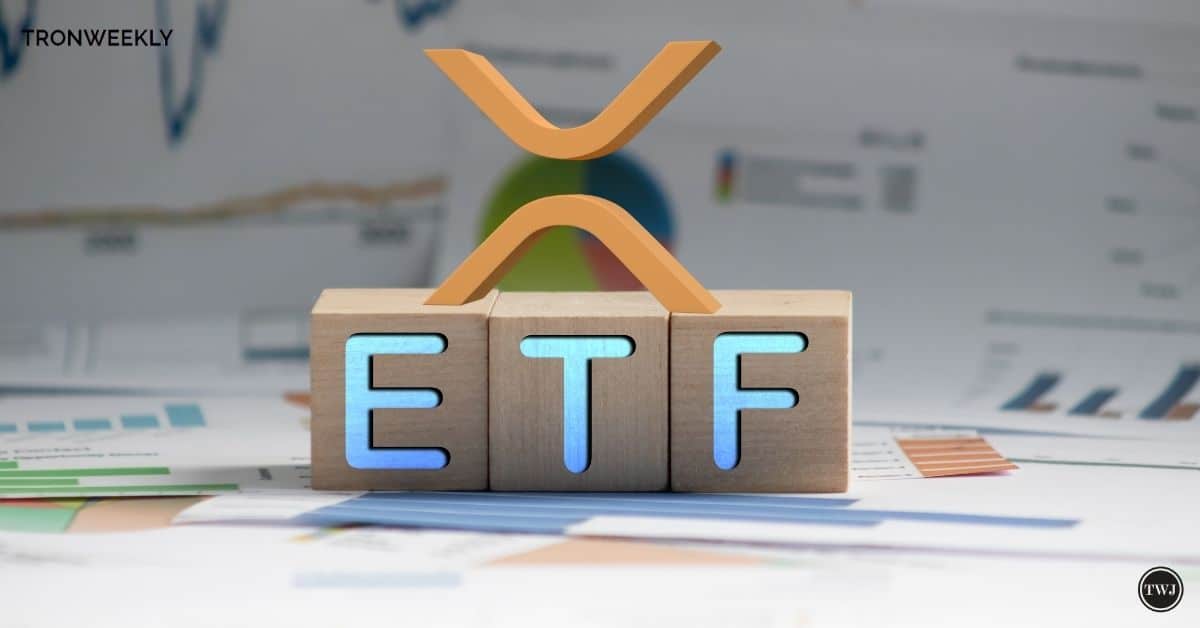SEC Vs. Ripple: The Impact Of XRP's Commodity Status Debate

Table of Contents
The SEC's Case Against Ripple
The SEC's core argument hinges on the allegation that Ripple conducted an unregistered securities offering by selling XRP to investors. Their case relies heavily on the Howey Test, a decades-old legal framework used to determine whether an investment contract qualifies as a security.
The Allegation of Unregistered Securities Offering
- The Howey Test: This test comprises four elements: an investment of money, a common enterprise, an expectation of profits, and profits derived primarily from the efforts of others. The SEC contends that XRP satisfies all four.
- Expectation of Profits: The SEC argues that XRP investors anticipated profits based on Ripple's efforts in developing the XRP Ledger and expanding its use. They point to Ripple's marketing and sales strategies as evidence of promoting XRP as an investment opportunity.
- Concerns Regarding Fraud and Manipulation: The SEC also expresses concerns about potential investor fraud and market manipulation related to Ripple's sales of XRP. They argue that the lack of registration deprived investors of crucial information and protections.
Ripple's Defense
Ripple vehemently denies the SEC's claims, arguing that XRP is a decentralized digital asset, akin to Bitcoin or Ether, and thus not a security. Their defense strategy focuses on several key points:
- Medium of Exchange and Store of Value: Ripple emphasizes that XRP functions primarily as a medium of exchange and a store of value within the XRP Ledger, not as an investment contract promising future profits based on Ripple's actions.
- Decentralization Argument: A crucial part of Ripple's defense is the assertion that XRP's increasingly decentralized nature undermines the SEC's claim. They argue that the level of Ripple's control over XRP has diminished significantly over time.
- Challenging the Howey Test's Applicability: Ripple challenges the SEC's application of the Howey Test to a digital asset like XRP, arguing that the test, developed decades before the advent of cryptocurrencies, is not suitable for the unique characteristics of this asset class.
The Ripple Case's Impact on the Crypto Market
The protracted legal battle surrounding XRP commodity status casts a long shadow over the cryptocurrency market, introducing substantial regulatory uncertainty and impacting investor sentiment.
Regulatory Uncertainty and Investor Sentiment
- XRP Price Volatility: XRP's price has shown significant volatility directly correlated with developments in the legal case. Positive news for Ripple often leads to price increases, while negative news results in price drops.
- Broader Market Impact: The uncertainty surrounding XRP has created a ripple effect across the broader crypto market, fueling concerns about potential regulatory crackdowns on other digital assets. This has led to periods of market correction and increased caution among investors.
- Attracting Institutional Investment: Regulatory clarity regarding the XRP commodity status, and cryptocurrencies in general, is crucial for attracting further institutional investment into the market. Currently, the uncertainty deters many large investors.
Implications for Other Cryptocurrencies
The outcome of the Ripple case will likely establish a significant precedent for how other cryptocurrencies are regulated, setting a benchmark for future regulatory decisions.
- Impact on Similar Tokens: The ruling could affect other tokens sharing characteristics with XRP, particularly those with centralized aspects or those marketed similarly.
- A Clearer Regulatory Framework: A decisive outcome, regardless of who wins, could pave the way for a clearer and more consistent regulatory framework for the cryptocurrency industry.
- Consequences for DeFi Projects: The case also has implications for decentralized finance (DeFi) projects, as the definition of a security could impact the regulatory environment for DeFi tokens and platforms.
Potential Outcomes and Future of XRP
Several scenarios could unfold following the court's ruling, each with significant consequences for XRP and the broader crypto market.
Scenarios Following the Ruling
- SEC Win: A SEC victory could lead to XRP being classified as a security, potentially impacting its trading accessibility and significantly affecting its price. It could also result in Ripple facing substantial financial penalties.
- Ripple Win: A Ripple win would be a landmark victory for the crypto industry, potentially setting a precedent that could significantly influence how other cryptocurrencies are classified. It could also boost XRP's price and adoption.
- Settlement: A settlement between the SEC and Ripple is also possible, with implications for both parties depending on the terms of the agreement. This could potentially offer some level of regulatory clarity, albeit perhaps without a definitive answer on the XRP commodity status.
The Long-Term Implications for Crypto Regulation
This case will undoubtedly shape the future of cryptocurrency regulation, influencing how regulators worldwide approach digital assets.
- Need for a Clear Regulatory Framework: The case highlights the urgent need for a clear, consistent, and globally harmonized regulatory framework for cryptocurrencies.
- Impact on Global Adoption: Regulatory clarity will be crucial for driving broader adoption of cryptocurrencies globally. Uncertainty hinders mass adoption by both individuals and businesses.
- International Cooperation: Effective crypto regulation will necessitate international cooperation between regulatory bodies to establish common standards and prevent regulatory arbitrage.
Conclusion
The SEC vs. Ripple case, revolving around the pivotal question of XRP commodity status, is a landmark legal battle with far-reaching implications for the cryptocurrency industry. The outcome will profoundly influence not only the fate of XRP but also establish a critical precedent for how regulators worldwide classify and regulate other digital assets. Understanding the nuances of this case, encompassing the SEC's arguments, Ripple's defense, and the potential outcomes, is crucial for anyone involved in or interested in the cryptocurrency market. Stay informed about developments in the XRP commodity status debate and its implications for your investment strategy.

Featured Posts
-
 Tran Dau Mo Man Chung Ket Suc Nong Bong Da Sinh Vien
May 01, 2025
Tran Dau Mo Man Chung Ket Suc Nong Bong Da Sinh Vien
May 01, 2025 -
 Rugby World Cup Dupont Leads France To Victory Against Italy
May 01, 2025
Rugby World Cup Dupont Leads France To Victory Against Italy
May 01, 2025 -
 Agha Syd Rwh Allh Mhdy Ka Bharty Kshmyr Palysy Ke Khlaf Ahtjaj
May 01, 2025
Agha Syd Rwh Allh Mhdy Ka Bharty Kshmyr Palysy Ke Khlaf Ahtjaj
May 01, 2025 -
 Home Opener Disappointment Angels Struggles With Walks And Injuries
May 01, 2025
Home Opener Disappointment Angels Struggles With Walks And Injuries
May 01, 2025 -
 France Dominates Italy Ireland On Six Nations Notice
May 01, 2025
France Dominates Italy Ireland On Six Nations Notice
May 01, 2025
Latest Posts
-
 Lich Thi Dau Giai Bong Da Thanh Nien Sinh Vien Quoc Te 2025 Xem Ngay 10 Tran Khong The Bo Lo
May 01, 2025
Lich Thi Dau Giai Bong Da Thanh Nien Sinh Vien Quoc Te 2025 Xem Ngay 10 Tran Khong The Bo Lo
May 01, 2025 -
 Guardians Alds Win Over Yankees Series Analysis And Insights
May 01, 2025
Guardians Alds Win Over Yankees Series Analysis And Insights
May 01, 2025 -
 Giai Bong Da Thanh Nien Sinh Vien Quoc Te 2025 Cap Nhat Lich Thi Dau 10 Tran Hap Dan Nhat
May 01, 2025
Giai Bong Da Thanh Nien Sinh Vien Quoc Te 2025 Cap Nhat Lich Thi Dau 10 Tran Hap Dan Nhat
May 01, 2025 -
 Cleveland Guardians Rally To Victory In Extra Innings Against Kansas City Royals
May 01, 2025
Cleveland Guardians Rally To Victory In Extra Innings Against Kansas City Royals
May 01, 2025 -
 10 Tran Dau Kich Tinh Tai Giai Bong Da Thanh Nien Sinh Vien Quoc Te 2025 Lich Thi Dau Day Du
May 01, 2025
10 Tran Dau Kich Tinh Tai Giai Bong Da Thanh Nien Sinh Vien Quoc Te 2025 Lich Thi Dau Day Du
May 01, 2025
